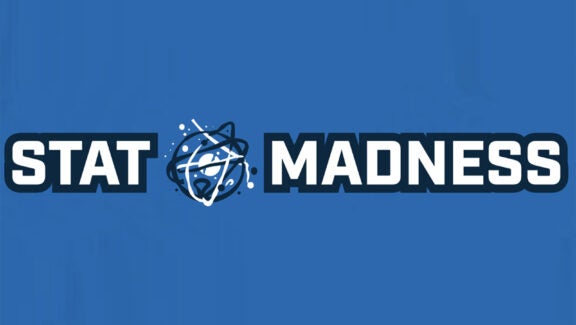
Goodbye Typenex Blood Bands, Hello New ‘Type and Screen’ Order
Implemented prior to 1984 and once the standard of care for labeling and tracking patient blood specimens, Typenex blood bands will no longer be used at UVA Health facilities effective July 15, 2025.
While the Typenex blood band is going away, the functionality it represents is not: namely, that we will still have an in-date sample in the blood bank that can be used for crossmatching patient blood. The trifecta of Electronic Positive Patient Identification (EPPID), Blood Product Administration Module (BPAM), and Transfusion Time-Outs — all currently standard work across UVA Health — will continue to be used to ensure accurate labeling of patient specimens and delivery of the correct blood product to the patient.
With the elimination of the Typenex band, we also will retire the “Type and Hold” (TYHD) order from Epic and replace it with a new “Type and Screen” (TASN) order for pre-transfusion testing. The new TASN order will order the same testing as the existing TYHD order (ABO/Rh and antibody screen), but providers will no longer enter the number of blood units needed with a TASN. Instead, they will use a streamlined “Prepare” order to request the number of units to be crossmatched for the patient. Moving to this two-step approach will simplify and clarify the process, and it will bring UVA Health in line with peer institutions.
To learn more about these changes and why we’re making them, read the FAQs below.
Why are we eliminating Typenex blood bands?
Typenex no longer adds value now that we have implemented several additional safety checks and procedures, primarily:
- Electronic Positive Patient Identification (EPPID) in which the patient’s blood sample is labeled at the bedside by scanning the patient’s armband to print the lab label and labeling the sample in the patient’s presence.
- Blood Product Administration Module (BPAM) verifies that the blood bank issued the correct blood product for that patient.
- Transfusion Time-Outs are performed by two licensed individuals verifying the correct blood product is for the correct patient (note: UVACH facilities use the similar Two-Person Verification and Readback).
This trio have become the standard of care when it comes to ensuring the accurate labeling and tracking of patient blood specimens.
By eliminating the Typenex band, we will:
- Eliminate extraneous work when collecting blood samples.
- Decrease re-collections: 63% of all rejected Blood Bank specimens in CY23 were due to Typenex errors.
- Decrease delays in patients receiving blood.
- Decrease in blood wastage due to errors related to Typenex blood band use.
- Decrease provider confusion when ordering blood: new “Type and Screen” order will replace “Type and Hold” order.
- Decrease Type and Crossmatch “re-dos” in the blood bank.
Why are we moving from a “Type and Hold” (TYHD) order to a “Type and Screen” (TASN) order?
Separating the pre-transfusion testing (type) from the preparation and holding of blood products (hold) will streamline and bring greater clarity to the ordering process. Most peer institutions already use separate TASN and Prepare orders, so this change will bring UVA Health in line with other academic medical centers.
What areas are impacted by the change?
All areas that collect patient blood specimens will be affected by the elimination of the Typenex band from their workflow and the adoption of the new “Type and Screen” order. That said, starting July 15, providers and nurses in Ambulatory clinics and Perioperative spaces will need to replace active collected or signed “Type and Hold” orders that contain a red blood cell (RBC) order with the new “Type and Screen” order and a separate “Prepare RBC” order. The tip sheet includes instructions for placing these orders.
What’s not changing?
While the Typenex band is going away, using the new TASN order will still ensure that the blood bank has an in-date sample that can be used for crossmatching blood. Notably, the expiration timeline for samples remains the same:
- Inpatients at University Medical Center: expiring at 7 a.m. on the third day.
- Inpatients at UVA Community Health Medical Centers: expiring 72 hours after the sample was drawn.
- Outpatient Pre-op collections: 4-28 day expiration:
- Specific criteria must be met for 4-28 day sample.
And as stated above, the trifecta of Electronic Positive Patient Identification (EPPID), Blood Product Administration Module (BPAM), and Transfusion Time-Outs will continue to be employed as the health system standard of care.
What is the patient impact?
Fewer errors caused by Typenex bands will mean fewer re-draws and delays in care for patients.
The ability to collect pre-operative samples from patients at outreach locations such as Riverside Health also will help expedite care. Currently, patients must be at a site that has Typenex bands to collect pre-operative samples, but that is rare, as most sites no longer use them.
How will we ensure patient safety?
EPPID and BPAM are the standard of care. The blood bank is notified if EPPID was not used during collection. If the patient has no history of an ABO-Rh blood type in SunQuest, then an ABO-Rh verification sample is ordered by the blood bank to verify the patient’s blood type. All blood administration will still require the two-person Transfusion Time-Out prior to administering blood products.
What is the timeline to change?
- Meeting roadshow to nursing and physician leaders: May and June.
- Tip sheets available: Expected week of June 23.
- Go-live July 15:
- Typenex blood bands no longer used in clinical environment.“Type and Screen” order live in Epic.
- “Type and Hold” order retired.
How should clinical team members and providers prepare for this change?
- Review the following tip sheets on the Epic Learning Library before July 15:
- Starting July 15, clinical teams in Ambulatory clinics and Perioperative units will need to replace active collected or signed “Type and Hold” orders that contain a red blood cell (RBC) order with the new “Type and Screen” order and a separate “Prepare RBC” order. The tip sheet includes instructions for placing these orders.
I have more questions: who can I talk to?
- Nursing: Marlene Mayberry (University Medical Center, University Physicians Group), Michelle Curran (UVA Community Health)
- Providers: Jenna Khan, MD; James Gorham, MD
Latest News



